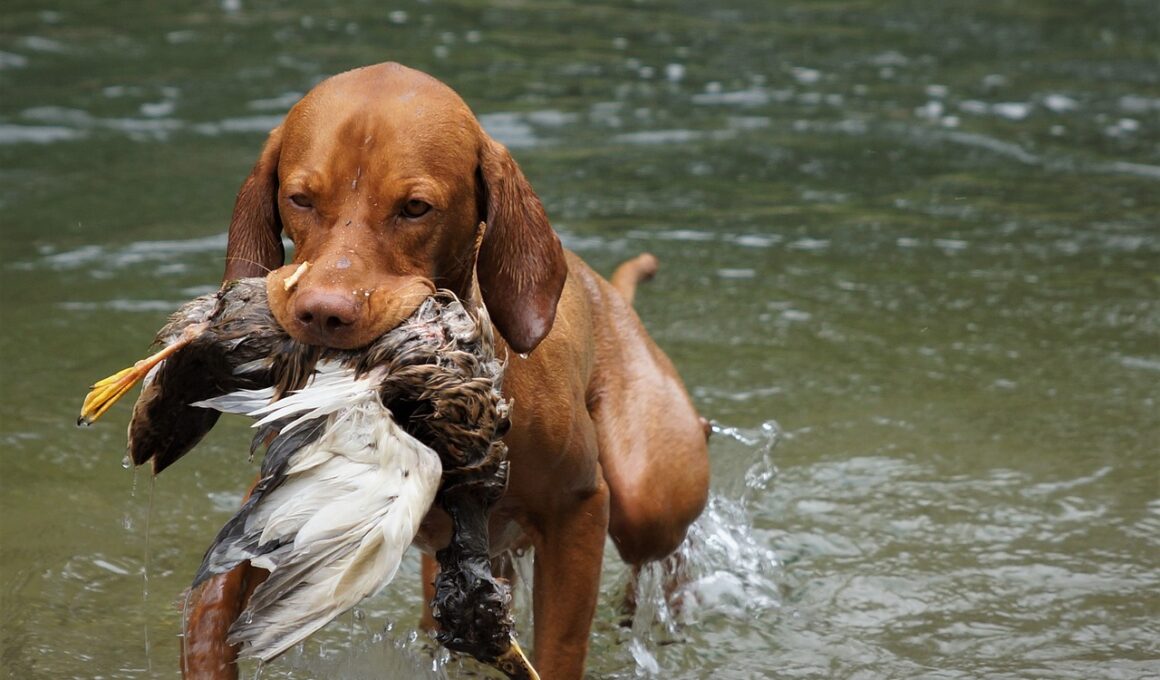Enforcement of Dog Hunting Laws: What Hunters Should Expect
Dog hunting laws exist to set clear boundaries on how hunters can utilize dogs while pursuing game. These laws vary significantly across states and regions, typically outlining the types of games dogs can be used to hunt and the methods that are deemed acceptable. Hunters must be aware of the specific regulations governing dog hunting in their area, as communities often have distinct rules for hunting seasons, dog breed restrictions, and permissible hunting grounds. Additionally, it is crucial for hunters to always have complete and up-to-date information regarding licensing requirements and to ensure their hunting dogs are compliant with local regulations. Failure to adhere to these laws can lead to legal ramifications, which may include fines, confiscation of dogs, or even loss of hunting privileges. Educating oneself on these laws not only promotes ethical hunting practices but also enhances the overall experience in the field. In summary, understanding dog hunting laws helps hunters anticipate potential enforcement actions and responsibilities, thereby minimizing risks associated with non-compliance.
Failure to adhere to dog hunting laws can lead to serious consequences for hunters. For example, ignorance about specific restrictions may result in engaging in prohibited hunting practices or using dogs in areas that are off-limits. It is important for hunters to familiarize themselves with the guidelines set forth by wildlife agencies and local authorities. These might include laws regarding leash usage, designated hunting areas, or requirements for dog safety and tracking. Compliance with these regulations not only reflects responsible hunting behavior but additionally contributes to the sustainable management of wildlife populations. Hunters should be vigilant in keeping their dogs under control and ensuring they don’t harm non-target species or cause disturbances to other hunters and landowners. Violations can lead to warnings, citations, or even criminal charges in severe cases. The repercussions can spoil a hunter’s reputation within the community and impact their future hunting opportunities. Therefore, it is advantageous for hunters to seek out resources, such as local hunting clubs or educational workshops, to remain knowledgeable about the ever-evolving dog hunting laws in their jurisdictions.
Key Responsibilities for Dog Owners
Being a responsible dog owner is crucial, especially under dog hunting laws that dictate how dogs should behave in the field. Dog owners need to ensure that their hunting dogs have proper training, which includes obedience, tracking skills, and safety protocols. Additionally, maintaining a strong bond with their dogs enables hunters to keep them focused and under control during expeditions. Owners should also invest in necessary gear, including tracking collars, leashes, and appropriate safety equipment for both themselves and their dogs. These preparations are not only essential for the success of a hunting trip but also for meeting legal obligations outlined in local hunting regulations. Moreover, responsible dog ownership necessitates having the required documentation—such as a dog’s vaccination records and hunting licenses—readily available during hunts. In the event of an encounter with law enforcement, presenting this documentation can alleviate misunderstandings and ensure compliance with regulatory frameworks. Ultimately, these responsibilities help maintain the integrity of hunting practices and demonstrate respect for wildlife and fellow hunters.
Moreover, hunters must actively participate in wildlife conservation efforts that often accompany hunting regulations. Many jurisdictions require hunters to submit reports detailing their hunting activities or contribute to surveys that track wildlife populations and dog hunting impacts. This data is invaluable for wildlife management agencies to maintain sustainable ecosystems and effective population controls. Supporting these initiatives fosters a more favorable environment for hunting and encourages responsible practices among fellow hunters. Participation in such research often enhances public awareness about the importance of regulations surrounding hunting with dogs, highlighting the essence of ethical wildlife management. Hunters can also engage in community workshops or training sessions focused on compliance with dog hunting laws, thereby promoting a culture of accountability and awareness among their peers. Ultimately, establishing a rapport with conservation officials can facilitate communication regarding hunting laws and potential modifications that best serve the community and its wildlife. Therefore, the interplay between compliance and conservation is essential; when hunters uphold laws, they invariably contribute to the ecological balance.
Interaction with Law Enforcement
Understanding how to interact with law enforcement is vital for hunters in the field. Compliance checks may occur when hunting with dogs, and knowing how to respond can alleviate potential issues. Always approach wildlife officers respectfully and provide requested documentation promptly. Maintain clear communication throughout the encounter and be honest about your hunting practices. Officers appreciate transparency and are more likely to offer guidance and educational resources when approached correctly. Additionally, familiarize yourself with rights and responsibilities under hunting laws to ensure you can advocate for yourself if necessary. If you believe a law is being improperly enforced, do not confront the officer; instead, kindly ask for clarification and document the encounter meticulously. This can serve to address any disputes later through appropriate channels. Understanding laws beforehand not only equips you to handle these interactions calmly but also promotes a positive relationship between hunters and law enforcement. Ultimately, these interactions serve as a reminder of the responsibilities hunters share to uphold law compliance and ethical hunting practices.
Finally, keeping abreast of changes in legislation is crucial for all hunters utilizing dogs in their pursuits. Laws often undergo revisions based on wildlife conservation needs, community input, and broader ecological contexts. Staying informed through reliable sources, such as state wildlife agencies or reputable hunting organizations, ensures hunters maintain compliance with current regulations. Subscribing to newsletters or joining local hunting clubs can provide essential insights into upcoming changes and community-specific rules. Engaging in these communities not only aids in information dissemination but also fosters camaraderie among hunters who share similar interests and goals. Additionally, participating in discussions surrounding legislative changes can empower hunters to advocate for favorable policies while still considering wildlife conservation concerns. Knowledge is an essential tool; thus, being proactive in understanding legislation and compliance will significantly enhance a hunter’s experience both in the field and within the community. Overall, commitment to responsible dog hunting practices, encompassing compliance, education, and advocacy, will yield positive outcomes for hunters, their dogs, and wildlife.
Conclusion
In conclusion, navigating dog hunting laws requires diligence and dedication from hunters. Understanding the regulations helps avert potential legal challenges while promoting ethical hunting practices. Hunters must actively engage in their communities and uphold conservation efforts in addition to familiarizing themselves with the law. Training and managing hunting dogs effectively is pivotal to ensure compliance and optimal performance during hunts. Through respectful interactions with law enforcement and participation in advocacy efforts, hunters can foster positive relationships with regulatory bodies and like-minded individuals. Staying informed about legislative changes is likewise essential for responsible hunting. By committing to these principles, hunters not only enhance their own experiences but also play an indispensable role in the sustainability and responsible management of wildlife resources. Such adherence underscores the respect hunting culture has for conservation and highlights the importance of collaboration between hunters, communities, and regulatory agencies. Ultimately, a commitment to responsible dog hunting laws will ensure that future generations can enjoy the thrills of hunting with their canine companions.
To illustrate the impact of enforcement on dog hunting laws, consider the ramifications of non-compliance. Many hunters have faced significant penalties due to unintentional violations, such as hunting without valid permits or misusing training collars. These consequences can deter individuals from participating in hunting or negatively influence public perception of the activity. Consequently, fostering a culture of education and compliance within hunting communities becomes paramount. By creating awareness through workshops and seminars, hunters can learn the importance of laws governing dog hunting while sharing best practices among themselves. Involving knowledgeable speakers like wildlife agents can lend authority to discussions and improve compliance rates among hunters. Additionally, employing technology, such as mobile apps for instant access to local laws and regulations, can make compliance more manageable. Emphasizing the value of shared knowledge places the onus on hunters to educate themselves and their peers. Critically, ethical hunting practices solidify the recreational relationship between hunters and the environment. Enhanced community engagement leads to responsible behaviors, which ultimately contribute to the preservation of wildlife and foster a sustainable hunting culture.


